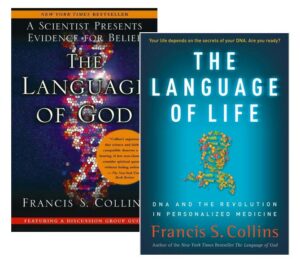Fine Tuning

Fine Tuning
I am convinced that the degree to which you recognize the above image, is an accurate indicator of your agility with the seedier elements of the English language. The Cushman 500 series engine did not teach me to cuss. My older brother taught me to cuss. But the Cushman 500 series provided the impetus for fine tuning my verbal execration and even for creating previously un-wedded grammatical combinations from the lexicon of offense.
I owned not one, but two Cushman motor scooters during the impressionable season of my tweens so you should not judge my occasional profane outburst. It’s a habit I’ve been trying to shake for over fifty years. If you follow Cushman collectors on-line, you’ll note that Cushmans are one of those rare collectables which nobody seems obligated to restore to their original state. Most of those 500 series engines have ended up in lake bottoms or on the wrong end of a target range. They’ve been replaced with everything from Harley engines to electric motors.
You wouldn’t expect something as simple as a single-cylinder, four-cycle engine could be all that difficult to keep tuned, but the 500 series was, for lack of a better term, “a piece of sh_ _”. The sparkplug gap had to be exactly right for the engine to idle correctly but the engines ran hot and tended to burn sparkplugs, which in turn, widened the gap. The timing between the valves and the magneto seemed to never be perfectly synchronized although both were permanently affixed. The bottom line was that in order to get what you wanted out of it, the engine had to be pampered like a high school cheerleader on homecoming night. Yeah, go ahead and call me a sexist. We’ve already established that I’m sporadically profane, but half of you agree with that analogy, even though you can’t admit it.
I’m fairly convinced that my older brother — the one who taught me to cuss — is a sadomasochist. He recently purchased and restored an old Cushman scooter, 500 series engine and all. I think he even painted the thing all black like some evil dominatrix. I keep meaning to ask him if they’ve established a safe word yet.
But I didn’t start this story to expose my brother’s naughty habits or even to talk about that God-forsaken, demon-possessed pile of metallic … well never mind that too. What I meant to talk about was fine tuning. If you Google the phrase, “Fine Tuning”, you’re likely to come across the term as a reference to the argument for Intelligent Design, often referred to as “The Fine-Tuned Universe”. Back in the late 1960’s, Carl Sagan swore the only two things necessary for life to exist are proper distance from a star like our Sun, and water.
Science has come a long way since the 60’s and it has not supported Mr. Sagan’s perspective. In fact, the odds against human life existing at all are astronomical. (see what I did there?) You could say we are walking the razor’s edge of existence. Everything from the precise size of the Earth and Moon, to the boundaries of our elliptical orbit around the Sun, to that giant asteroid-sentry named Jupiter, to the peculiar freezing properties of water, to the precise values of the four forces of nature (gravity, electromagnetic force, small nuclear force, and large nuclear force) – virtually everything – points to a super intelligence behind the Big Bang.
The field of Biology provides additional evidence of Fine Tuning. Our genetic code is incredibly unique and complex. Individual cells, once assumed to be simple globs of “protoplasm”, each contain enough information to fill a large library.
“Although the tiniest bacterial cells are incredibly small, weighing less than [0.0000000000001grams], each is in effect a veritable micro-miniaturized factory containing thousands of exquisitely designed pieces of intricate molecular machinery, made up of [one hundred billion] atoms, far more complicated than any machinery built by man and absolutely without parallel in the non-living world.” —geneticist Michael Denton 1
“The discoveries of the last decade, little known to most of the public, have completely overturned much of what used to be taught in high school biology. If you thought the DNA molecule comprised thousands of genes but far more “junk DNA,” think again. —Francis Collins, leader of the original Human Genome Mapping project 2
If you’d like to read more about Fine Tuning and the scientific advances over the last forty years, see the book recommendations at the end of this newsletter. You’ll never read about this stuff in the mass media. They’re too busy stoking the fires of social unrest so they can have something to report on.
And, as usually happens in the schizophrenic recesses of my mind, “Fine Tuning” wasn’t even the final trailhead I was looking for. My real point is this: If indeed, the jack-ass sitting across the coffee shop from you, carrying on a Zoom meeting with the volume turned up ridiculously high, was created by a higher intelligence (even though said jack-ass may vehemently deny that fact), does he (or she) not have a level of worth, based on their origin, that exceeds their near-sighted behavior and merits our patience? And, if you’re willing to stretch that far, how about the homeless guy over in the corner who stinks to high heaven and keeps bugging you for spare change? How about your cranky clients, or your irritated spouse? Ready to cry “uncle” yet?
My question, as always is, “Where does human value originate?” If it originated in the primordial swamp, then how do we condemn things like racism and child molesting, and sociopathic behavior? Are they not just alternate psychological offshoots, equal in origin to socially preferred values like love, respect, and kindness? I would suggest there exists a much higher intelligence from which we came, and that we derive our value and purpose solely from that origin. I would also insist that the Cushman 500 series engine did not come from that same place!
1. Chuck Missler and Stephen Meyer, In the Beginning There Was… Information
(Couer d’Alene, Idaho: Koinonia House, 2020
2: Francis S. Collins, “The Language of Life”
(Harper Collins Publishers, New York, NY 2009)
 Email me at guy@lawsoncomm.com so we can talk face-to-face about stuff that matters. Who knows, we might even become friends and build on each others’ experience.
Email me at guy@lawsoncomm.com so we can talk face-to-face about stuff that matters. Who knows, we might even become friends and build on each others’ experience.
When you realize that the laws of nature must be incredibly finely tuned to produce the universe we see, that conspires to plant the idea that the universe did not just happen, but that there must be a purpose behind it.
― Sir John Polkinghorne


Did someone forward this newsletter to you after reading it themselves? Don’t settle for that!
CLICK HERE
to get a fresh, unused copy of this newsletter sent directly to you every Sunday morning. If you decide it stinks, you can always unsubscribe.
The Language of God &
The Language of Life
— Francis S. Collins
 Two well-written books by the man who led the original Human Genome Mapping project. In the first book, Collins explains many of the findings of the Human Genome Project from the perspective of his unique world view. In the second book, he delves into the incredible advances that genetic research is bringing to modern medicine.
Two well-written books by the man who led the original Human Genome Mapping project. In the first book, Collins explains many of the findings of the Human Genome Project from the perspective of his unique world view. In the second book, he delves into the incredible advances that genetic research is bringing to modern medicine.
Is Atheism Dead?
— Eric Metals
 Wherever you stand on the Intelligent Design debate, this is a must-read book that provides a look into recent findings in every field of science. Metaxas is a bit over-the-top at points but he lives in New York so he gets a few grace points with regards to his style. His content, however, is indisputable and his Bibliography is a reading list for anyone interested in the pros and cons of Intelligent Design and/or the relationship between Science and Religion.
Wherever you stand on the Intelligent Design debate, this is a must-read book that provides a look into recent findings in every field of science. Metaxas is a bit over-the-top at points but he lives in New York so he gets a few grace points with regards to his style. His content, however, is indisputable and his Bibliography is a reading list for anyone interested in the pros and cons of Intelligent Design and/or the relationship between Science and Religion.
A meeting of great minds who think alike












